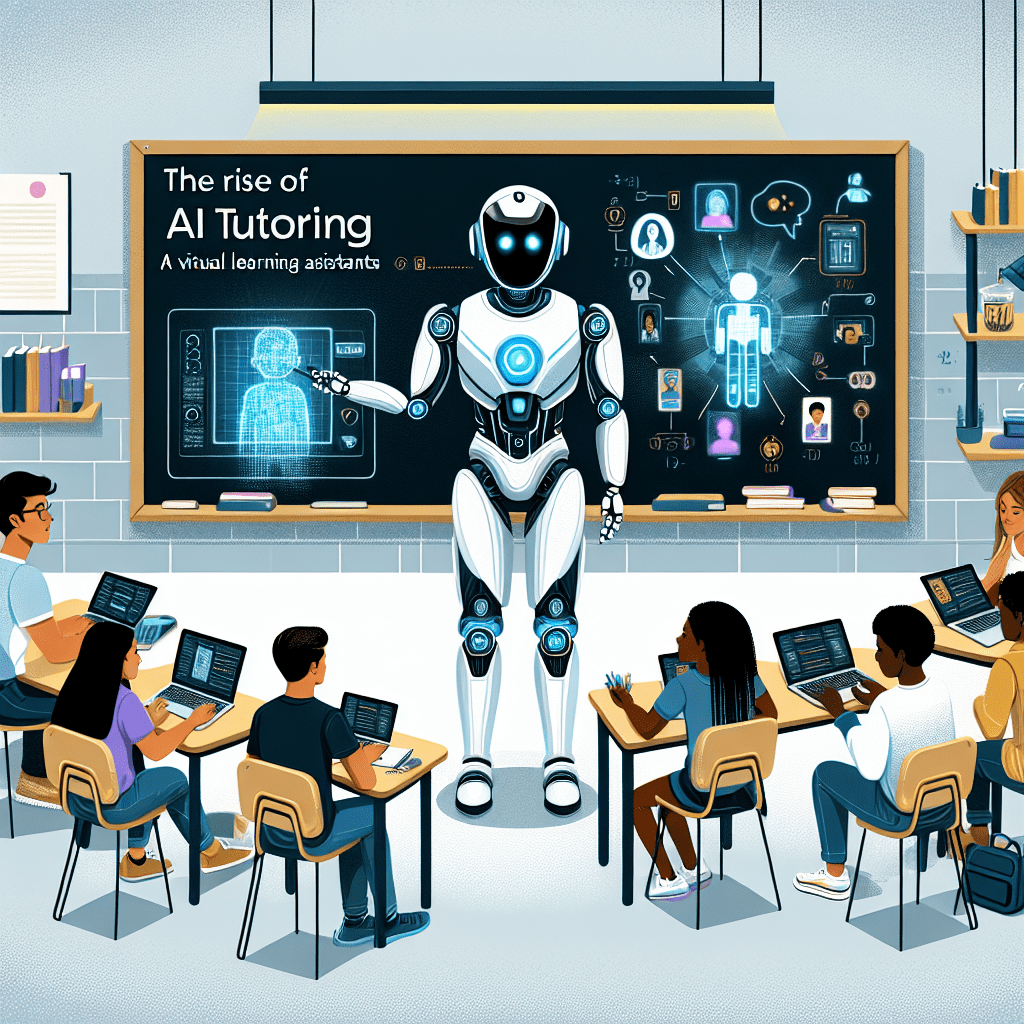In recent years, the field of education has seen a significant shift towards utilizing artificial intelligence (AI) in the form of virtual learning assistants. These intelligent systems are designed to support and enhance the learning experience for students across various subjects and levels of education.
What is AI Tutoring?
AI tutoring, also known as intelligent tutoring systems, is a technology-based approach to learning that uses AI algorithms to provide personalized and adaptive learning experiences to students. These virtual learning assistants are designed to mimic the work of human tutors by providing feedback, guidance, and support to students as they navigate through educational materials.
How Does AI Tutoring Work?
AI tutoring systems work by collecting and analyzing data on individual students’ learning patterns, preferences, and performance. This data is used to create personalized learning pathways for each student, tailored to their specific needs and learning styles. Virtual learning assistants can deliver content through a variety of formats, such as text, audio, video, and interactive simulations, to engage students and reinforce concepts.
The Benefits of AI Tutoring
There are many benefits to incorporating AI tutoring into the educational landscape. One of the key advantages is the ability to provide personalized and adaptive learning experiences to students. Virtual learning assistants can deliver content at the right pace and level of difficulty for each student, helping them to progress more quickly and effectively through their studies.
AI tutoring systems also offer immediate feedback to students, enabling them to identify and correct mistakes in real-time. This instant feedback can enhance students’ understanding of concepts and improve their overall learning outcomes.
The Future of AI Tutoring
As AI technology continues to advance, the field of AI tutoring is expected to grow and evolve rapidly. Virtual learning assistants will become increasingly sophisticated, able to provide even more personalized and interactive learning experiences to students. These intelligent systems may eventually be able to adapt to individual students’ emotional states and cognitive abilities, further enhancing the learning process.
Conclusion
The rise of AI tutoring represents a significant advancement in the field of education, offering students personalized and adaptive learning experiences that can help them to excel academically. Virtual learning assistants have the potential to revolutionize the way we learn, providing immediate feedback and support to students as they navigate through their studies. As AI technology continues to develop, the future of AI tutoring looks promising, with virtual learning assistants becoming increasingly sophisticated and effective in supporting students’ learning.
FAQs
What subjects can AI tutoring assist with?
AI tutoring systems can assist with a wide range of subjects, including mathematics, science, language arts, and more. These virtual learning assistants are designed to provide support and guidance across various subject areas and levels of education.
How can students benefit from AI tutoring?
Students can benefit from AI tutoring by receiving personalized and adaptive learning experiences that cater to their individual needs and learning styles. Virtual learning assistants can help students to progress more quickly through their studies and improve their overall academic performance.
Are AI tutoring systems replacing human tutors?
While AI tutoring systems are designed to mimic the work of human tutors, they are not intended to replace them entirely. Virtual learning assistants can supplement human tutors by providing additional support and feedback to students, enhancing the learning experience.
Quotes
“The integration of AI tutoring into education has the potential to transform the way we learn and empower students to reach their full academic potential.” – Dr. Jane Smith, Educational Technology Expert
#Rise #Tutoring #Closer #Virtual #Learning #Assistants


